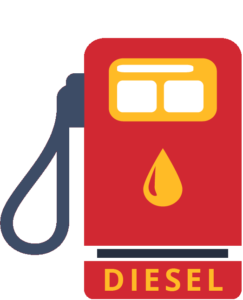The impeccable greens and rolling hills at BraeBen Golf Course in Mississauga, Ont., served as a fitting backdrop for the inauguration of Ontario’s first all-electric waste collection truck.
The golf course sits on a reclaimed landfill site, proving what was once ugly can again be beautiful. And the messy business of waste collection can also be much cleaner in the years ahead. Emterra Group, an Oakville, Ont.-based waste collection company with operations in Ontario, B.C., Saskatchewan, Manitoba and Michigan, will soon put the first Mack LR Electric on Ontario roads, serving the Region of Peel.

For Emterra founder Emmie Leung, it’s a big deal. Before revealing the truck at a well-attended event Oct. 10, she spoke of why she got into the waste business in the first place. Having immigrated to Canada from Hong Kong and obtained a business degree from the University of Manitoba, she was jobless and looking to apply her newly acquired business skills.
She was struck by the vast natural resources Canada had available to it, but also the fact so much of our waste – especially paper – went directly into the trash rather than being recycled. She founded International Paper Industries in Vancouver, B.C., in 1976 with a single truck she drove herself, collecting waste paper for recycling. The rest, as they say, is history and now the company boasts more than 1,100 employees in 50 locations with five divisions.
Natural fit for Emterra
Being the first in Ontario to deploy an electric refuse truck was natural for Emterra, Leung said. Emterra was also among the first waste companies to transition to trucks fueled by compressed natural gas (CNG). About 150 trucks serve Peel Region today, most powered by CNG engines that reduce GHG emissions by about 20% compared to diesel. The Mack LR Electric — with 376-kWh battery capacity and twin electric motors putting out 448 hp, will produce no tailpipe emissions and practically no noise.
Mid-Ontario Truck Centre supplied the truck and related charging infrastructure, and will provide the ongoing maintenance.
David Vidakovic, central district manager, Mack Trucks Canada explained that the “closed loop application” of refuse collection is perfect for electrification.
“In the garbage industry the truck idles a lot of the time,” he noted. “And you have it back at the end of the day for charging.”

Peel Region’s low-emission experience
Nando Iannicca, regional chairman, Peel Region, said his region was one of the first to use CNG trucks for refuse collection in 2016. “Here we go again in 2023, continuing to demonstrate our leadership by being the first in Ontario and one of the first in Canada to go electric,” he said.
Paulina Leung, chief sustainability officer at Emterra Group, added the company was the first in an Arctic climate to use CNG trucks as early as 2012. “We continue to embrace GNG and we’re now tapping into electric,” she said. “We are believers in trying something new; not trying to fail, but fail fast and learn and move on.”
She commended Peel Region for supporting the move to electric collection trucks.
“You have used your procurement power and scale to drive investment and change in transportation and the recycling and waste sector,” she said. “We hope residents feel the impact of this change, with less noise and better air quality.”
Emterra Group and Peel Region are working with the Smart Freight Centre to evaluate the charging and operational needs of the electric truck. Its evaluation will also shape how and where Emterra deploys future electric trucks.
“Canada’s climate is unique, with sweltering summers and frigid winters. The Smart Freight Centre will work with us to monitor and evaluate comprehensive data from this pilot and assess its impact,” Paulina Leung said. “This project aims to inform municipal and private fleet operators on future fleet electrification, air quality improvement, and noise reduction.”



